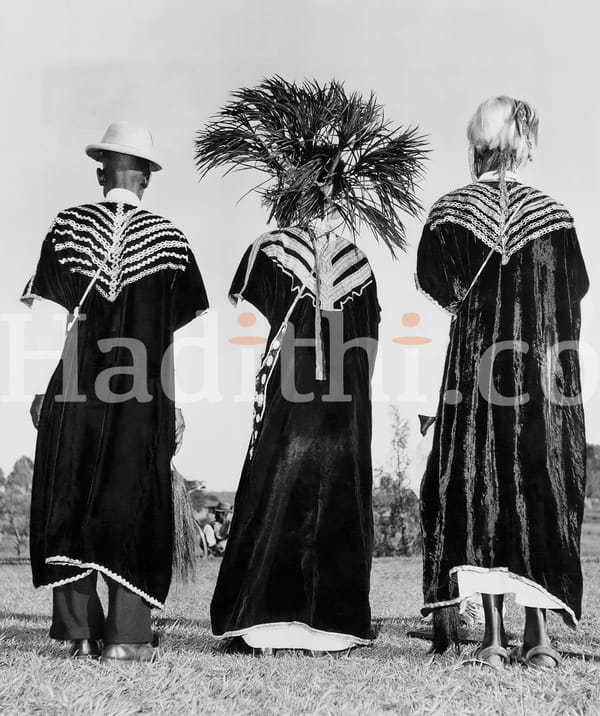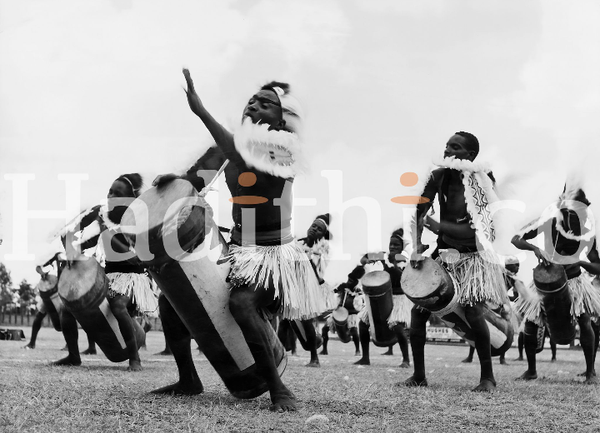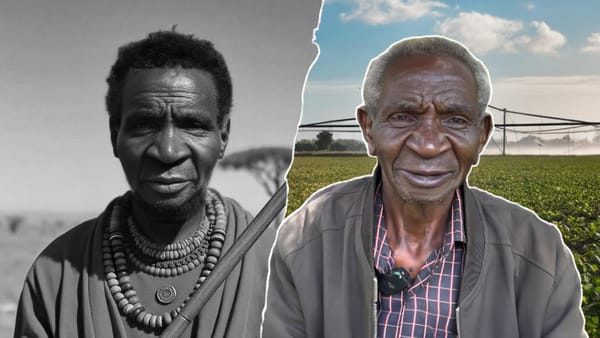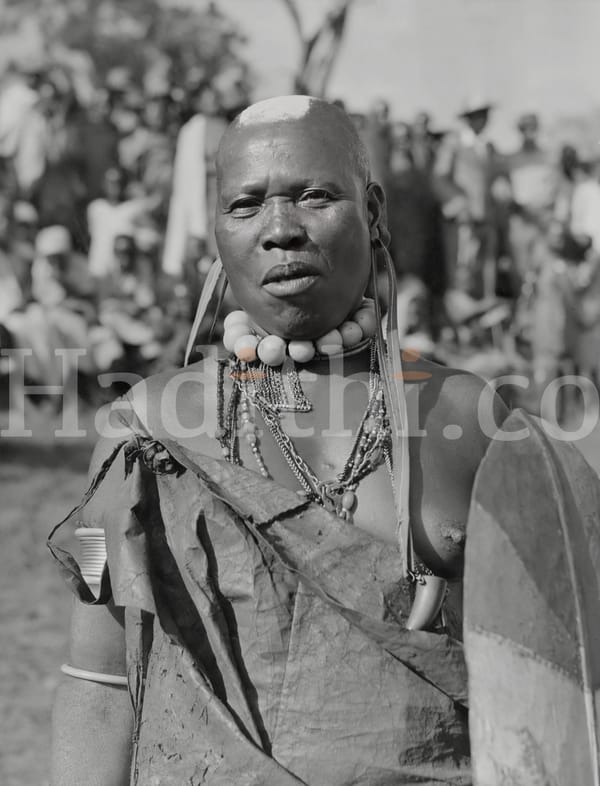The Rise of Young People in Kenya: Their Role from Pre-Colonisation to Present Day
The contribution of youths in Kenya to the development processes dates from pre-colonial through colonial to modern times.
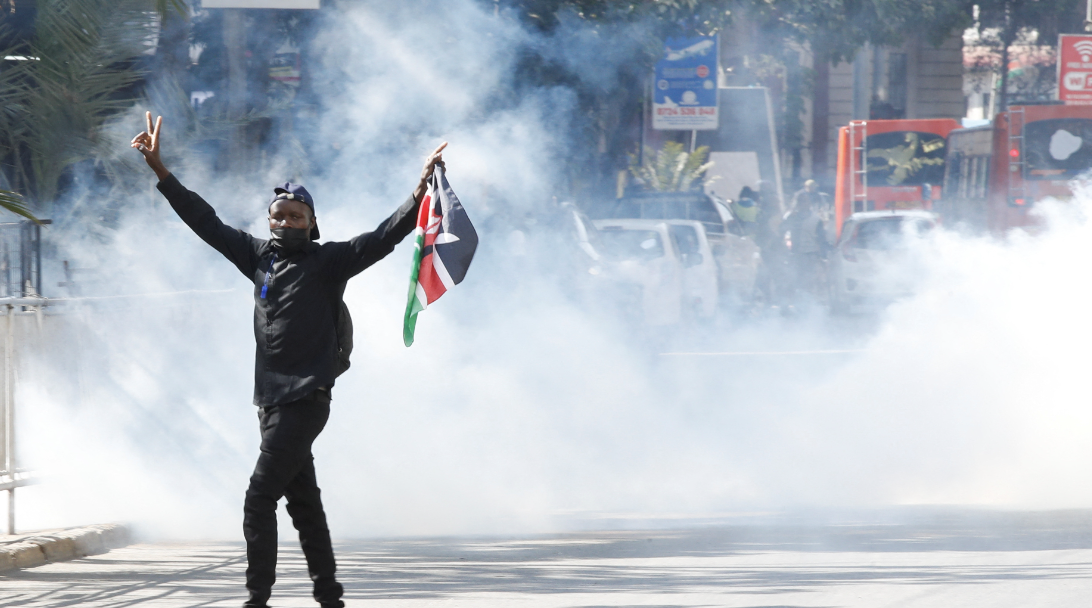
The contribution of youths in Kenya to the development processes dates from pre-colonial through colonial to modern times. The role played by the youth transformed from just their traditional societal roles to key players in political transformations. This paper explores the contributions of young Kenyans through various historical epochs, highlighting significant figures and movements.
Pre-Colonial Era
In pre-colonial Kenya, it was the young people who were central to this. They were the warriors; they were the farmers and the emerging future leaders. Among the Maasai, young men known as Moran defended their communities and cattle. Such a role built into them a sense of responsibility and groomed them for leadership. The transition from youth to adulthood was marked by initiation ceremonies, preparing them for greater societal roles.
Colonial Period
The colonial era disrupted traditional structures, with new forms of resistance and activism enlisted from 1895 to 1963. Western education and Christianity introduced challenges as well as opportunities. Through education, young Kenyans began questioning colonial rule, further demanding independence.
More than a few young Kenyans played pivotal roles in the fight for independence during the colonial era in Kenya. Noted among them are:
1. Jomo Kenyatta
Born in 1897, Jomo Kenyatta attended various mission schools before advancing his studies in London. His education in Western style, as well as political ideas, contributed to his role as a leader in the struggle for independence. During his time in London, he belonged to the circle of most influential African and Caribbean intellectuals, British politicians, and scholars who believed in African self-determination.
Upon his return to Kenya, Kenyatta became a pivotal figure in the struggle for independence. He assumed the presidency of the Kenya African Union (KAU) and leveraged this position to advocate for greater African representation and rights. Under his leadership, KAU shed its previously uneventful nature and emerged as a significant force in the intensified push for independence.
It is through his political acumen that he led the KANU Party to victory in the pre-independent state elections and was sworn in as the first Prime Minister of Kenya in 1963 and later the first President when it attained full independence in 1964. His presidency opened new horizons for efforts at nation-building toward unity and development.
2. Dedan Kimathi and the Mau Mau Fighters
Dedan Kimathi was a young leader who emerged at the helm of the Mau Mau upsurge from 1952-1960. To a great degree, the Mau Mau movement was a youth-driven important armed struggle against British colonial rule. Kimathi's strong personality and organizational capabilities were very important in the mobilization and leadership of the rebellion. Based mainly in the forests of central Kenya, Kimathi and his fighters used government troops with guerrilla tactics, going through bitter hardships and heavy reprisals.
Their sacrifices and bravery in highlighting colonial injustices and drawing international attention played a key role on the road to independence for Kenya. Kimathi's capture and subsequent execution in 1957 did not deter this particular genius's legacy, as he still remains one of the most powerful symbols of youth determination in the fight and struggle for freedom and justice.
3. Tom Mboya
Tom Mboya, born in 1930, was a prominent trade unionist and political leader. He studied at missionary schools and later in the United States. Mboya's leadership in the labour movement and his eloquent advocacy for independence on international platforms made him a key figure in Kenya's struggle for freedom. Mboya was known for his advocacy for education, and he helped organise the "Airlift Africa" programme, which enabled many young Kenyans, including future President Barack Obama’s father, to study in the United States. His assassination in 1969 was a major blow to the country, underscoring the volatile nature of Kenyan politics at the time.
4. Bildad Kaggia
Bildad Kaggia was born in 1921 and turned out to be one of the influential freedom fighters of Kenya, alongside Jomo Kenyatta, in the Mau Mau movement. Having received his education from the mission schools, Kaggia's literacy and organizational skills became an important instrument in mobilizing resistance against colonial rule in the Mau Mau uprising. His leadership and dedication were very helpful in coordinating efforts and inspiring fighters during the revolution, thus making him one of the front freedom fighters in the struggle for independence.
After independence, Kaggia remained a significant figure in Kenya's politics. He was elected to the Legislative Council in 1957 and became an MP during which he championed land reforms and social justice, fighting for the poor and the subjugated. Kaggia contributed much toward the independence of Kenya, and he remained steadfast to the course of equality and justice. His spirit to fight for the just course has left its mark and entices generations yet to come in building a just and equitable society.
.
5. Pio Gama Pinto
Pio Gama Pinto, born in 1927, was of Goan descent and educated in India and Kenya. Pinto's activism through journalism and politics, particularly his support for the Mau Mau movement and his role in KANU, highlighted the contributions of diverse ethnic groups in the fight for independence. He was a close ally of Jomo Kenyatta and an outspoken advocate for socialism. Pinto’s work included mobilising support for the Mau Mau movement and advocating for land reforms. His assassination in 1965 was a significant event, reflecting the internal conflicts within the newly independent nation.
6. Musa Gitau
Born in 1888, Musa Gitau was a famous preacher and educator instrumental in using education to advance Kenyans' rights. Having known the potential of education to cause many changes, Gitau chose teaching and the uplifting of Kenyans as the way to spend his life. He established schools aimed at giving young Kenyans access to education regardless of origin. Through his efforts, a generation of literate people, armed with information and skills to resist and fight back against colonial control, was produced. Gitau's commitment to education laid the groundwork for many leaders and participants during Kenya's struggle for independence. This education gave its citizens a sense of empowerment and national identity. The strong belief and unwavering dedication of Musa Gitau has left an indelible mark.
Post-Independence Period
After independence in 1963, the youth continued to shape the nation’s political and social landscape.
Martin Shikuku and Robert Ouko
Martin Shikuku, known as the "People's Watchman," emerged as a pivotal figure in post-independence Kenyan politics. A passionate advocate for democracy and transparency, Shikuku became renowned for his outspokenness and commitment to holding the government accountable. As a young politician, he tirelessly championed the rights of ordinary citizens, pushing for legislative reforms that aimed to strengthen democratic institutions and uphold civil liberties. Shikuku's influence extended beyond his legislative duties; he actively engaged with grassroots movements and civil society organizations, galvanizing public support for progressive reforms in governance.
Similarly, Robert Ouko, who served as Kenya's Foreign Minister, was a dynamic and influential young leader during his tenure in the 1980s. Known for his diplomatic prowess and vision for Kenya's international relations, Ouko played a crucial role in shaping the country's foreign policy agenda. His leadership was marked by efforts to foster regional stability, enhance diplomatic ties, and promote Kenya's interests on the global stage. Tragically, Ouko's mysterious assassination in 1990 sent shockwaves through the nation and underscored the turbulent nature of Kenyan politics during that era. His death remains a poignant reminder of the challenges faced in maintaining political stability and transparency in the country.
James Orengo and Student Activism
James Orengo emerged as a significant figure in the fight for political reforms. As a young lawyer and politician, he was at the forefront of the struggle for multi-party democracy in the 1980s and 1990s. His activism was strongly supported by student movements, particularly the University of Nairobi Students Organisation (SONU). SONU, comprising young, educated Kenyans, became a powerful voice against autocratic rule and advocated for democratic governance. The organisation’s protests and demands for political reforms played a crucial role in Kenya's transition to multi-party democracy in 1992.
Additional Political Youth Leaders Who Made an Impact in Kenya
Wangari Maathai
Wangari Maathai, although best known for her environmental activism, also made significant political contributions as a young leader. In the 1970s and 1980s, she was active in various social and political movements, advocating for democracy, human rights, and environmental conservation. Maathai founded the Green Belt Movement, which focused on tree planting, environmental conservation, and women's rights. She later became the first African woman to win the Nobel Peace Prize in 2004.
Uhuru Kenyatta
Uhuru Kenyatta, born in 1961, is another example of a young leader who made a significant impact. The son of Kenya's first President, Jomo Kenyatta, Uhuru entered politics at a young age. He became the Deputy Prime Minister and Minister of Finance before ascending to the presidency in 2013. His tenure has been marked by efforts to modernise Kenya's infrastructure and economy, although it has also faced challenges related to corruption and governance.
Charity Ngilu
Charity Ngilu is a notable female political leader who made her mark as a young politician in the 1990s. She was one of the few women to run for the presidency in 1997 and has served in various ministerial positions, including Minister of Health and Minister of Water and Irrigation. Ngilu has been a strong advocate for women's rights and social justice, and her political career has inspired many young women in Kenya.
Martha Karua
Martha Karua, born in 1957, is a prominent lawyer and politician who has been a key figure in Kenyan politics since the 1990s. As a young leader, she was known for her strong stance on justice and human rights. Karua served as Minister of Justice, National Cohesion, and Constitutional Affairs, and she has been a vocal advocate for constitutional reforms and anti-corruption measures. Her leadership continues to inspire young Kenyans, especially women, to engage in politics and governance.
Babu Owino and Modern Political Activism
Babu Owino, a former chairman of SONU and a current Member of Parliament, epitomises the modern young political leader. Known for his outspoken nature and activism, he represents the new generation of leaders who are unafraid to challenge the status quo. His journey from student leadership to national politics underscores the enduring influence of university activism.
Conclusion
It is through the rise of young political leaders that the political history of Kenya has been shaped. For many decades, young Kenyans stepped up to lead, advocate, and drive changes separately very instrumental in this nation's journey toward independence and what lay beyond. Young leaders have come from various backgrounds and in their contributions, either through activism at the grassroots levels or by holding the most powerful political offices. They have uniquely contributed to fresh perspectives and new approaches and have been hard to knock off their feet in moving things forward amid the inhibiting complexities confronting the nation.
History has blessed personalities like Tom Mboya and Bildad Kaggia, who, in youthful leadership, were unrivaled in terms of power in the fight for independence, for it was their education and organizational prowess that mobilized the masses against colonial rule. This laid the foundation upon which post-independence leadership took over the baton for continued development processes. Young politicians and activists such as Boniface Mwangi and Johnson Sakaja have carried this tradition into modern times, and continue to mobilize using the emerging tools and platforms in this era to stabilize the cause of social justice, transparency, and economic reforms.
The leadership of young Kenyans has also been instrumental in addressing critical issues such as corruption, unemployment, and inequality. Through initiatives in governance, education, and technology, they have sought to create more opportunities for the youth and other marginalised groups. Their efforts have not only brought significant policy changes but have also inspired a new generation to engage in civic and political processes, fostering a more participatory democracy.
As Kenya continues to evolve, the role of young leaders will remain vital in ensuring a vibrant and inclusive future for all. Their ability to adapt to changing circumstances, embrace new technologies, and challenge the status quo will be essential in navigating the complexities of the 21st century. By continuing to empower and support young leaders, Kenya can harness their potential to drive sustainable development and create a more equitable society.
References
1. Tom Mboya
- Clough, M. (1990). Fighting Two Sides: Kenyan Chiefs and Politicians, 1918-1940. Boulder: Lynne Rienner Publishers.
- Goldsworthy, D. (1982). Tom Mboya: The Man Kenya Wanted to Forget. Heinemann.
2. Pio Gama Pinto
- Gona, G. (2010). Pio Gama Pinto: Patriot for Social Justice. Centre for Democracy and Social Rights.
3. Wangari Maathai
- Maathai, W. (2007). Unbowed: A Memoir. New York: Alfred A. Knopf.
- Ndegwa, A. (2007). "Wangari Maathai's Green Belt Movement". Journal of Contemporary African Studies, 25(2), 161-170.
4. Uhuru Kenyatta
- Branch, D. (2011). Kenya: Between Hope and Despair, 1963-2011. Yale University Press.
- Throup, D. (2012). "The 2013 Elections in Kenya". Journal of Eastern African Studies, 6(4), 630-640.
5. Charity Ngilu
- Nduta, P. (2004). Women and Political Leadership in Kenya: Ten Case Studies. Heinrich Böll Foundation.
- Wainaina, W. (2013). "Profile: Charity Ngilu". The East African.
6. Martha Karua
- Oloo, A. (2010). "Martha Karua: The Woman Who Defied the Odds". Journal of Modern African Studies, 48(1), 117-136.
- Kabira, W. M., & Nzioki, E. A. (1993). Celebrating Women's Resistance: A Case Study of Women's Groups in Kenya. African Women's Development and Communication Network (FEMNET).
7. General References on Kenyan Youth in Politics
- Cheeseman, N., & Anderson, D. (2015). The Rift: A New Africa Breaks Free. Zed Books.
- Murunga, G. R., & Nasong'o, S. W. (2006). Kenya: The Struggle for Democracy. Zed Books.
- Mutua, M. (2008). Kenya's Quest for Democracy: Taming Leviathan. Lynne Rienner Publishers.
8. General Historical Context
- Ogot, B. A., & Ochieng, W. R. (1995). Decolonization and Independence in Kenya, 1940-1993. James Currey.
- Berman, B., & Lonsdale, J. (1992). Unhappy Valley: Conflict in Kenya and Africa. James Currey.

